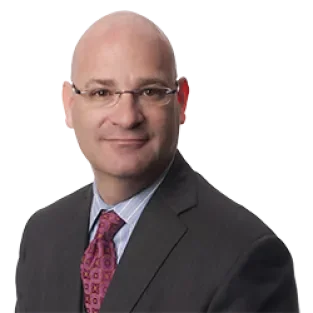ASAP
Ninth Circuit Reverses Course in ERISA Case
In a previous ASAP article, we discussed the Ninth Circuit's June 6, 2014 decision in Gabriel v. Alaska Elec. Pension Fund, 755 F.3d 647 (9th Cir. 2014). In the initial opinion issued by the court, the panel split 2-1 in affirming a district court's ruling that the appellant was not entitled to ongoing retirement benefits, even though the relevant pension fund had provided those benefits for three years prior to the parties becoming involved in litigation. The court initially held that the remedy sought by the appellant—called equitable surcharge—was unavailable to him under ERISA. See 11 U.S.C. § 1132(a)(3); ERISA § 502(a)(3). Pursuing that relief, the initial opinion stated, was contrary to the limited equitable relief regime set forth in the remedial provisions in the statute. In a strenuous partial dissent, Judge Marsha Berzon wrote that the panel had misconstrued the Supreme Court's decision in CIGNA Corp. v. Amara, 131 S. Ct. 1866 (2011), misread the Ninth Circuit's earlier cases, and in fact had triggered a circuit split on the issue of equitable surcharge.
On July 21, 2014, the appellant filed with the court a request for a rehearing or a rehearing en banc. A joint amicus brief—submitted on behalf of the National Employment Lawyers Association and the AARP—was filed on the same day, supporting the appellant. In response, Appellee Alaska Electrical Pension Fund filed its brief in opposition to rehearing or rehearing en banc on August 20, 2014. Much of the briefing discussed the equitable surcharge issue.
On December 16, 2014, without granting or denying the motion for rehearing (and before any action was taken by the full court to rehear the case en banc), the panel that issued the initial decision withdrew its earlier opinion, and a new opinion was issued, also written by Judge Sandra Ikuta. See Gabriel v. Alaska Elec. Pension Fund, 2014 WL 7139686 (9th Cir., Dec. 16, 2014). The new opinion echoed the earlier one with respect to appellant's claims for reformation and equitable estoppel, but it declined to reach the merits of his equitable surcharge theory. Instead, it simply remanded the issue to the district court. Judge Kozinski, who had joined Judge Ikuta in the initial opinion, now concurred in the judgment that allowed the appellant to pursue his claim in the district court, but expressed skepticism that the appellant would be able to ultimately obtain any relief under the theory.
In her majority opinion, Judge Ikuta wrote, without any reference to her earlier opinion rejecting the equitable surcharge theory, that the Supreme Court's decision in Amara dictated a remand to the district court. ("In Amara, the Supreme Court held that where the district court had not determined if an appropriate remedy may be imposed under § 502(a)(3), the correct approach was to vacate the judgment below and remand the case for further proceedings.") (internal quotation marks omitted). This, without more, was sufficient for Judge Ikuta to hold that the Ninth Circuit would take such an approach, "consistent with our sister circuits." In so holding, the opinion cited to the out-of-circuit cases that Judge Berzon had previously contended had "split" with the Ninth Circuit.
As we noted in our ASAP, a plaintiff's ability to bring a cause of action for equitable surcharge remains uncertain in the wake of Amara. Some courts, like the district court on remand in Amara, have held that a plaintiff may have a right to relief under an equitable surcharge theory for personal loss suffered by the plaintiff himself or herself. See Amara v. Cigna Corp., 925 F. Supp. 2d 242, 256-57 (D. Conn. 2012) ("It is challenging to even imagine a scenario where a violation of ERISA §§ 102(a) or 104(b) would by itself lead to the type of harm to trust assets that CIGNA asserts is a necessary prerequisite to surcharge."). This is often referred to as "make-whole" relief. Other courts, however, would take a narrower view, implying that a plaintiff might only be able to seek equitable surcharge if the loss is suffered by the trust itself as a whole. See Skinner v. Northrop Grumman Ret. Plan B, 673 F.3d 1162, 1166 (9th Cir. 2012). These claims would arise from either a trustee's breach of duty, or to prevent the trustee's unjust enrichment. While the initial opinion in Gabriel appeared to rely on Skinner for the second of these views, the withdrawal of the Gabriel opinion and remand to the district court appears to re-open the question for the Ninth Circuit.
For his part, Judge Kozinski concurred with the remand, though he noted that he "serious[ly] doubt[ed] that Gabriel will prevail on such a surcharge claim consistent with our opinion." This, Kozinski noted, was because the court had already rejected the appellant's equitable estoppel theory, relying on evidence that the appellant had in fact possessed knowledge that he was not qualified for benefits from the Fund. Since a claim for equitable surcharge requires that a plaintiff show both harm and causation, Kozinski noted that the appellant would have difficulty proving the elements of the claim when the court had already ruled that he did not reasonably rely on the Fund's earlier inaccurate statements. Kozinski concluded by stating that "unless Gabriel claims some other harm on remand besides the harm that allegedly resulted from his reliance on the Fund's payment of benefits and incorrect statements, the Fund would be entitled to summary judgment on the issue of Gabriel's entitlement to a surcharge."
The decision does not prevent either party from seeking rehearing en banc as to the newly issued opinion. And even if that review does not occur, given that the case may be appealed once again regardless of the district court's decision on remand, it is unlikely that we have seen the end of this dispute.

